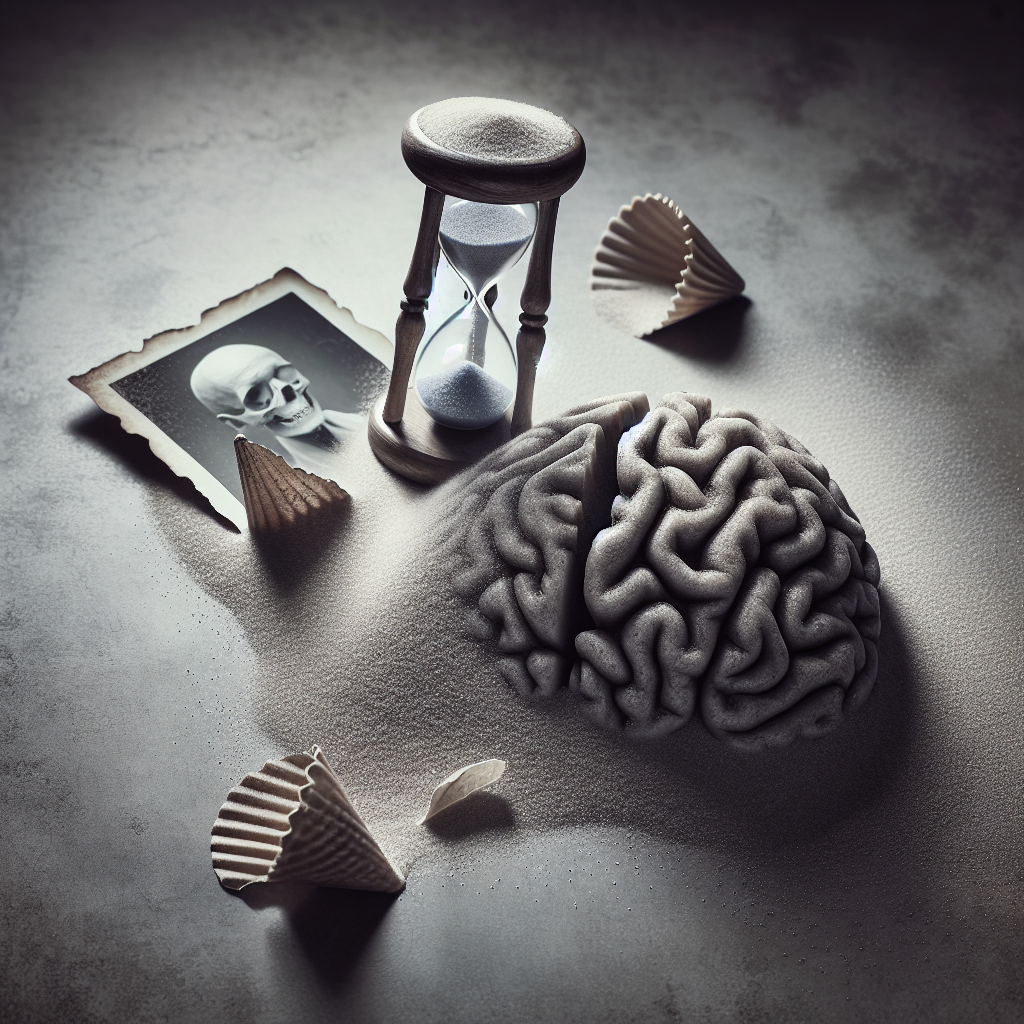Cognitive Decline
Understanding the Stages of Dementia
Gain a greater understanding of the stages of dementia in this informative article. Learn about early signs, memory loss, language difficulties, and more.
Imagine a world where memories gradually slip away, where familiar faces become unfamiliar, and everyday tasks become a challenge. This is the reality for individuals experiencing the stages of dementia. In this article, we will explore the different stages of dementia, from the earliest signs to the most advanced symptoms. By gaining a greater understanding of these stages, you will be better equipped to support your loved ones or those in your care who are affected by this devastating condition. So, let’s embark on this journey together and shed light on the intricate journey of dementia.
Early Stage of Dementia
Definition of Dementia
Dementia is a progressive neurological disorder characterized by a decline in cognitive functioning, including memory loss, impaired thinking, and changes in behavior and emotions. It is not a specific disease but rather a term used to describe a group of symptoms caused by various underlying conditions such as Alzheimer’s disease, vascular dementia, or Lewy body dementia.
Early Warning Signs
In the early stage of dementia, you may notice subtle changes in memory and thinking abilities. Forgetfulness becomes more frequent, and you may start misplacing objects or struggling to remember recent events. Difficulty finding the right words during conversations or becoming easily distracted may also be early warning signs. Additionally, you may experience mood changes, such as feeling anxious or depressed, as well as difficulties with problem-solving and decision-making.
Memory Loss
One of the hallmark symptoms of dementia is memory loss. In the early stage, you may have trouble recalling recent conversations, appointments, or where you placed commonly used items. Forgetting important dates or events can be frustrating and may cause you to rely more on reminders or written notes. While occasional forgetfulness is common in everyone, persistent memory problems that affect daily functioning should not be ignored.
Difficulties with Language
As dementia progresses, you may find it increasingly challenging to express yourself or understand others. Difficulty finding the right words or following a conversation becomes more apparent. You may struggle to remember the names of familiar people or objects. This language impairment can affect your ability to participate in social activities and may lead to frustration or withdrawal from conversations.
Anxiety and Depression
The early stage of dementia can bring about feelings of anxiety and depression. Coping with the changes in memory and thinking abilities can be overwhelming and may result in heightened feelings of worry or unease. You might start feeling more irritable, restless, or lacking interest in activities you once enjoyed. It is important to address these emotional changes and seek support from friends, family, or healthcare professionals.
Mild Stage of Dementia
Progression of Symptoms
As dementia progresses from the early stage to the mild stage, the symptoms become more noticeable and may begin to interfere with daily activities. Memory impairment becomes more pronounced, and it becomes increasingly challenging to retain new information. You may also experience difficulties with visual perception, such as judging distances or recognizing familiar objects.
Difficulty with Familiar Tasks
In the mild stage of dementia, you may find it increasingly challenging to perform tasks that were once familiar and routine. Simple activities like cooking, managing finances, or operating appliances may become frustrating and confusing. You may require extra time and assistance to complete these tasks or start relying on others for support.
Trouble with Planning and Organization
Planning and organizing activities become more challenging as dementia progresses. You may struggle to follow a schedule or remember upcoming appointments. Keeping track of bills, managing medications, or even planning social engagements can become overwhelming. It is important to establish strategies and support systems to help you manage these difficulties.
Changes in Mood and Personality
Mood and personality changes can become more evident in the mild stage of dementia. You may experience fluctuations in emotions, such as becoming easily irritable, angry, or confused. Personality traits may also shift, with some individuals becoming more withdrawn or apathetic, while others may display increased impulsiveness or inappropriate behavior. These changes can have a significant impact on relationships with family, friends, and caregivers.
Wandering and Getting Lost
Wandering and getting lost are common behaviors in the mild stage of dementia. The affected individual may feel a restless urge to constantly move and wander off, often without any specific purpose. This behavior poses safety risks, as they may become disoriented and unable to find their way back home or to familiar surroundings. Implementing safety measures, such as GPS tracking devices or home modifications, can help ensure their well-being.

Moderate Stage of Dementia
Increasing Cognitive Decline
In the moderate stage of dementia, cognitive decline becomes more pronounced. Memory loss extends beyond recent events and starts to encompass significant chunks of the individual’s past, including their personal history and relationships. The ability to learn new information diminishes greatly, and the individual may require continuous support in daily activities.
Problems with Language and Communication
Communication difficulties worsen in the moderate stage of dementia. The affected individual may forget common words or struggle to understand complex sentences. They may rely increasingly on non-verbal cues or gestures to express themselves. It becomes crucial for caregivers and loved ones to use clear and simple language, provide visual aids, and be patient and understanding during conversations.
Problems with Motor Skills
Motor skills, including coordination, balance, and dexterity, tend to deteriorate in the moderate stage of dementia. Walking may become unsteady and require assistance or the use of mobility aids. Everyday tasks, such as dressing, grooming, or eating, might become challenging and necessitate assistance. Occupational therapy and physical exercise can help maintain muscle strength and mobility as much as possible.
Inability to Recognize Familiar Faces
In the moderate stage of dementia, recognizing familiar faces, including those of family members and close friends, becomes increasingly difficult. The individual may struggle to remember names, faces, or relationships, leading to increased isolation and confusion in social settings. Patience, support, and providing visual cues can help mitigate the impact of these changes on their well-being.
Agitation and Restlessness
Agitation and restlessness are common symptoms in the moderate stage of dementia. The affected individual may exhibit increased pacing, hand-wringing, or repetitive behaviors. Agitation can be triggered by environmental factors, such as noise or unfamiliar surroundings, or by discomfort or frustration resulting from communication or cognitive difficulties. Creating a calm and familiar environment can help minimize these symptoms.
Incontinence Issues
Urinary and fecal incontinence become more prevalent in the moderate stage of dementia. The individual may have difficulty recognizing or communicating their need to use the bathroom, resulting in accidents and dependency on others for personal care. It is important for caregivers to provide supportive and compassionate assistance while maintaining the individual’s dignity.
Severe Stage of Dementia
Significant Memory Loss
In the severe stage of dementia, memory loss is profound and extends to all aspects of the individual’s life. They may no longer recognize even close family members or recall major life events. Their ability to engage in meaningful conversations diminishes, and their responses become more limited and repetitive.
Loss of Ability to Speak
The severe stage of dementia is often characterized by a loss of verbal communication skills. The individual may struggle to form coherent sentences or may not be able to express their needs or desires verbally. Non-verbal communication, such as gestures, facial expressions, and eye contact, becomes more important for understanding their needs and emotions.
Loss of Motor Skills
Motor skills continue to decline in the severe stage of dementia. The individual may become entirely dependent on others for mobility, as muscle weakness and coordination problems worsen. They may require assistance with transfers, positioning, and daily activities such as eating, bathing, and dressing.
Loss of Ability to Eat and Swallow
In the severe stage of dementia, eating and swallowing difficulties can arise, leading to nutrition and hydration challenges. The individual may experience difficulties chewing or coordinating the movement of food from the mouth to the throat. Ensuring a safe and appropriate diet, such as pureed foods or thickened liquids, may be necessary to prevent aspiration or choking.
Loss of Bladder and Bowel Control
Bladder and bowel control become increasingly compromised in the severe stage of dementia. The individual may experience accidents or may no longer be able to recognize or communicate the need to use the toilet. Proper hygiene and the use of absorbent products, along with regular toileting routines, can help manage these issues.
Total Dependence on Caregivers
In the severe stage of dementia, individuals become completely reliant on others for their care and daily activities. They require comprehensive assistance with all aspects of their lives, including personal hygiene, mobility, feeding, and medication management. Maintaining a compassionate and supportive caregiving environment is vital to ensure their well-being and quality of life.

Diagnosis and Assessing Dementia Stages
Seeking Medical Evaluation
If you or a loved one are experiencing symptoms suggestive of dementia, it is crucial to seek medical evaluation. Schedule an appointment with a healthcare professional who specializes in geriatrics or neurology. They will conduct a comprehensive assessment to evaluate your symptoms, medical history, and perform necessary tests to determine the cause and stage of dementia.
Physical and Neurological Examinations
During a medical evaluation for dementia, the healthcare professional will perform a physical and neurological examination. This helps assess basic motor function, reflexes, and sensory abilities. The examination may include checking blood pressure, heart rate, and evaluating muscle strength and coordination.
Cognitive and Memory Tests
To assess cognitive function and memory, various tests may be administered. These tests evaluate attention, memory, problem-solving abilities, language skills, and visual-spatial perception. Examples of commonly used tests include the Mini-Mental State Examination (MMSE) and the Montreal Cognitive Assessment (MoCA). Results from these tests help determine the severity of cognitive impairment and aid in staging the dementia.
Imaging Techniques
In some cases, imaging techniques such as magnetic resonance imaging (MRI) or computed tomography (CT) scans may be used to identify changes in brain structure and rule out other potential causes of cognitive decline, such as tumors or strokes. These imaging tests can provide visual evidence of brain atrophy or the presence of abnormalities associated with certain types of dementia.
Determining Dementia Stage
Assessing the stage of dementia involves considering various factors, including the individual’s cognitive, functional, and behavioral abilities. Healthcare professionals use classification systems, such as the Global Deterioration Scale (GDS) or the Functional Assessment Staging Test (FAST), to determine the stage of dementia. These scales help guide treatment decisions, provide insights into disease progression, and assist in planning for future care needs.
Treatment and Care Options
Medication
Medication can help manage certain symptoms and slow down the progression of dementia in some cases. Cholinesterase inhibitors, such as donepezil, rivastigmine, and galantamine, are commonly prescribed to improve cognitive function and delay the decline in memory, thinking, and behavior. Memantine, an NMDA receptor antagonist, may be prescribed to moderate symptoms in moderate to severe Alzheimer’s disease. Medications are prescribed based on the type and stage of dementia and individual considerations.
Therapeutic Interventions
Therapeutic interventions, such as occupational therapy, speech therapy, and physical therapy, can help individuals with dementia maintain functional abilities, enhance quality of life, and promote independence. Occupational therapy focuses on activities of daily living, while speech therapy targets communication and swallowing difficulties. Physical therapy aims to maximize mobility, balance, and strength. These interventions are tailored to individual needs and can be beneficial at any stage of dementia.
Cognitive Stimulation
Engaging in cognitive stimulation activities can help preserve cognitive function and provide a sense of purpose and enjoyment for individuals with dementia. These activities may include puzzles, memory games, music therapy, art therapy, or participation in support groups. Cognitive stimulation can help improve mood, reduce behavioral symptoms, and maintain cognitive abilities for as long as possible.
Nutritional Management
Proper nutrition is essential for individuals with dementia to maintain overall health and wellbeing. A balanced diet rich in fruits, vegetables, lean proteins, and whole grains should be encouraged. Adequate hydration is also important. In some cases, nutritional supplements may be recommended to ensure individuals receive essential nutrients. Consultation with a registered dietitian can provide personalized dietary recommendations.
Assistive Devices and Safety Measures
Assistive devices and safety measures should be implemented to create a safe and supportive environment for individuals with dementia. These may include grab bars, handrails, non-slip flooring, and sensor-activated lights to prevent falls. Reminders and assistive technologies can help with medication management, personal care routines, and daily activities. Regular home safety evaluations should be conducted to identify potential hazards and make appropriate modifications.

Managing the Emotional Impact
Grief and Loss
A diagnosis of dementia can be emotionally challenging for both individuals with dementia and their loved ones. It is common to experience a sense of grief and loss as cognitive abilities decline and the person’s identity changes. It is important to recognize these feelings and seek support through counseling, support groups, or therapy to navigate the emotional impact of dementia.
Depression and Anxiety
Depression and anxiety are prevalent in individuals with dementia. These conditions can further impair cognitive function and quality of life. It is important to encourage open communication about emotions, explore non-pharmacological interventions such as music therapy or pet therapy, and involve mental health professionals to provide appropriate support and treatment options.
Coping Strategies
Developing coping strategies can help individuals with dementia and their caregivers manage the challenges associated with the disease. This may include setting realistic expectations, adapting routines and environments to account for changes, seeking respite care or support from other caregivers, implementing stress-management techniques, and maintaining a positive outlook. Utilizing these coping strategies can improve the overall well-being and quality of life for everyone involved.
Support Groups and Therapy
Support groups provide a valuable outlet for individuals with dementia and their caregivers to share experiences, express emotions, and learn from others facing similar challenges. Support groups can offer practical advice, emotional support, and a sense of community. Therapy, such as cognitive-behavioral therapy or family therapy, can also be beneficial in addressing emotional concerns and helping individuals and families navigate the impact of dementia on their lives.
Supporting the Person with Dementia
Creating a Safe and Familiar Environment
Creating a safe and familiar environment is vital for individuals with dementia. Simplifying the living space, minimizing clutter, and ensuring adequate lighting can help reduce confusion and promote independence. Personal belongings, such as photographs, familiar objects, or treasured mementos, can provide a sense of comfort and familiarity. It is essential to minimize potential hazards and ensure a calm and secure environment.
Maintaining Daily Routines
Establishing and maintaining daily routines can provide structure and familiarity, reducing anxiety and confusion for individuals with dementia. Consistent waking and sleeping times, regular meals, and engaged activities can enhance mood, promote a sense of purpose, and minimize behavioral symptoms. Flexibility and patience are key when managing routines, as the needs and abilities of the individuals may change over time.
Communication Strategies
Effective communication strategies are crucial for interacting with individuals with dementia. Using simple, clear language, maintaining eye contact, and speaking slowly can enhance understanding. Non-verbal cues, such as gestures or facial expressions, can help convey emotions or instructions. Active listening and providing adequate time for responses are essential. It is important to remain patient, calm, and focused during conversations.
Promoting Independence and Engagement
Promoting independence and engagement in meaningful activities can enhance the quality of life for individuals with dementia. Allowing them to maintain a level of autonomy in daily activities, such as self-care tasks or decision-making within safe limits, can preserve their sense of identity and dignity. Engaging in hobbies, creative activities, or reminiscence therapies tailored to their interests can provide stimulation and positive experiences.
Managing Challenging Behaviors
Individuals with dementia may display challenging behaviors due to cognitive and emotional changes. Aggression, restlessness, agitation, or apathy can be managed through strategies such as redirection, maintaining a calm environment, providing familiar objects or activities, and ensuring adequate physical and emotional comfort. Understanding potential triggers and seeking guidance from healthcare professionals or specialized dementia care providers can help address these behaviors effectively.

Caregiver Support and Resources
Identifying Caregiver Stress
Caring for someone with dementia can be emotionally and physically demanding, putting caregivers at risk of stress and burnout. Recognizing the signs of caregiver stress, such as fatigue, irritability, sleep disturbances, or decreased concentration, is essential for addressing the caregiver’s needs. It is crucial to prioritize self-care, seek respite care or support from other caregivers, and utilize available resources to prevent caregiver burnout.
Seeking Support
Caregivers should seek emotional support and practical assistance to help navigate the challenges of dementia care. This can be in the form of family members, friends, or support groups specifically designed for dementia caregivers. Support can also be obtained from healthcare professionals, social workers, or dementia-specific organizations that offer information, guidance, and respite care services.
Respite Care
Respite care provides temporary relief to caregivers by arranging for another trained individual to assume care responsibilities for a limited period. This break allows caregivers to attend to their own needs, engage in leisure activities, or simply rest and recharge. Respite care can be provided in various settings, including at home, in adult day care centers, or in residential care facilities.
Educational Resources
Educational resources on dementia care can provide caregivers with valuable information and training to enhance their caregiving skills and understanding of the disease. These resources may consist of books, online courses, webinars, or informational websites offering guidance on topics such as communication strategies, symptom management, or self-care for caregivers. Accessing these resources can empower caregivers to provide optimal care for their loved ones.
Legal and Financial Planning
Dementia care often involves complex legal and financial considerations. It is important to consult with an attorney specializing in elder law to establish legal documents such as power of attorney, healthcare proxies, or living wills. Financial planning should also be addressed, including long-term care insurance, eligibility for government assistance programs, or exploring options for financing care. Early planning ensures that the individual’s wishes are respected and helps alleviate future burdens.
End-of-Life Care and Hospice Options
Understanding End-of-Life Care
End-of-life care for individuals with dementia focuses on providing comfort, dignity, and support during the terminal stages of the disease. Understanding and discussing end-of-life wishes in advance can help guide decision-making regarding medical interventions, palliative care options, and ethical considerations. Hospice care becomes an option when the individual is determined to have a life expectancy of six months or less and aims to provide comprehensive support to individuals nearing the end of life.
Navigating Hospice Services
Hospice care offers a multidisciplinary approach to end-of-life care, addressing not only physical symptoms but also emotional, psychological, and spiritual needs. Hospice teams typically consist of healthcare professionals, social workers, chaplains, and volunteers who collaborate to provide compassionate care in the individual’s preferred setting, whether it is at home, in a hospice facility, or in a hospital. Navigating hospice services requires coordination, clear communication, and a shared understanding of the individual’s goals and preferences.
Advance Directives
Advance directives are legal documents that outline an individual’s preferences for medical care in the event they are no longer able to communicate their wishes. These documents, such as living wills or do-not-resuscitate (DNR) orders, guide healthcare professionals and family members in making decisions regarding end-of-life care. It is important to discuss and document preferences early on, while the individual with dementia still has the capacity to express their wishes.
Supporting Families and Caregivers
Supporting families and caregivers during the end-of-life journey is crucial. Emotional support, counseling, and bereavement services can help individuals navigate the complex emotions associated with the loss of their loved one. Connecting with support groups or seeking individual counseling can provide a safe space to process grief and obtain guidance in adjusting to life after the loss.
In conclusion, dementia progresses through various stages, each characterized by distinct symptoms and challenges. Early stage symptoms may include memory loss, difficulties with language, and feelings of anxiety or depression. As the disease progresses to the mild stage, individuals may struggle with familiar tasks, organization, and experience changes in mood and personality. The moderate stage brings increasing cognitive decline, problems with language, motor skill difficulties, and an inability to recognize familiar faces. The severe stage involves significant memory loss, loss of ability to speak and eat, and complete dependence on caregivers. Diagnosis and assessment of dementia stages involve seeking medical evaluation, physical and cognitive tests, and imaging techniques. Treatment and care options include medication, therapeutic interventions, cognitive stimulation, nutritional management, and the use of assistive devices. Managing the emotional impact of dementia involves addressing grief, depression, and anxiety through coping strategies, support groups, and therapy. Supporting the person with dementia requires creating a safe environment, maintaining routines, using effective communication strategies, promoting independence, and managing challenging behaviors. Caregivers also need support and resources to manage caregiver stress, seek assistance, utilize respite care, and plan for legal and financial matters. Finally, end-of-life care and hospice options provide comfort, dignity, and support during the terminal stages of dementia, and supporting families and caregivers through bereavement is crucial for their well-being.
















